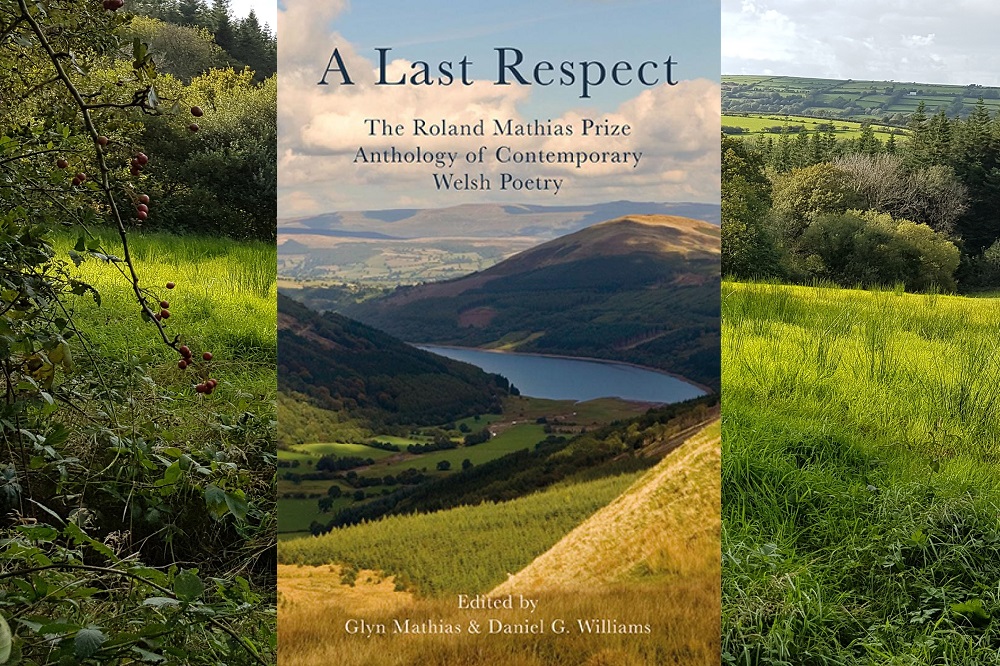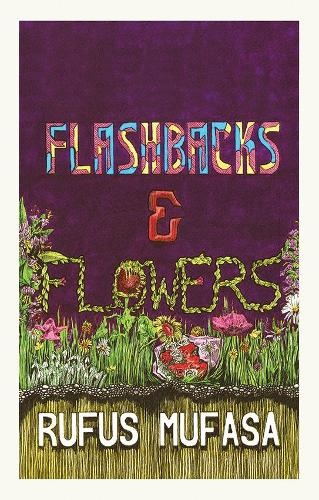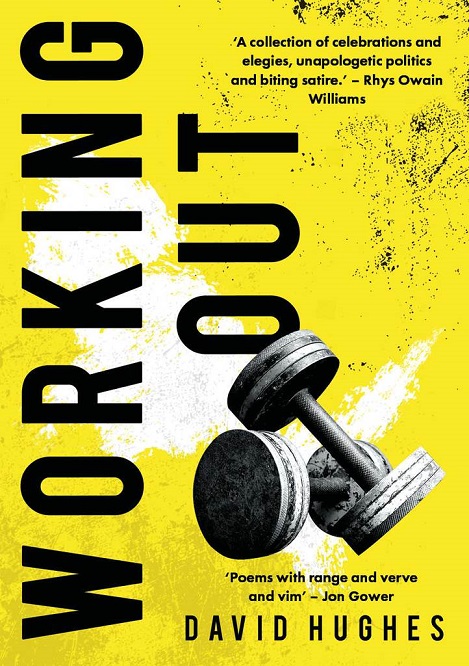Poetry roundup: Caroline Bracken reviews three new collections: A Last Respect, Flashbacks & Flowers and Working Out

Caroline Bracken
Don’t be fooled by the photo of the gorgeous Welsh landscape by Chris Howes on the cover of ‘A Last Respect’, an anthology of contemporary poetry from Wales. All winners of the Roland Mathias Prize, here are a chorus of voices, each singing their own tune.
There are some poems of Welsh places, such as Christine Evans’ ‘Llŷn’: ‘after dark/ like busy star-systems, the lights/ of Harlech, Aberystwyth, Abergwaun/ wink and beckon.’ Ruth Bidgood’s ‘Lives’ is another example: ‘The valley is full of life,/ hardly any of it human./ Big freestanding hawthorns/ are coming into bloom.’
The other topics in the anthology range from vermin ‘I showed him the oven,/ where I accidentally roasted a mouse’ (Pest Controller by Rhian Edwards) to marriage ‘honeysuckle nights,/ when you’d open the jammed sashed window/ above the dark basement flat and I, below,/ would be an urgent, athletic Romeo.’ (A Marriage by Dannie Abse). Owen Sheers and Robert Minhinnick’s poems about war and Philip Gross’s about emigration make for disturbing reading given current world events.
Masters of the craft
The point is that subject matter aside, all the poets in this anthology are masters of the craft and the reader does not need to know anything about birds to appreciate Gwyneth Lewis’s series of poems including ‘Murmuration’: ‘I fell among starlings,/ Birds of the damned.’ You don’t have to be a runner to relate to Tiffany Atkinson’s ‘Nightrunning’: ‘You/ balance your breath like a bowl of dry/ ice.’ You don’t have to have children to feel the words in Ailbhe Darcy’s ‘After my son was born’: ‘He knocked/ me so my nose coughed blood,/ punched a finger through my cornea.’
The anthology is book-ended by two essays, one ‘Worth the Record’ about Roland Mathias by Jane Aaron who won the prize in 2009, the other ‘Afterword: Old and New Shibboleths’ by Daniel G. Williams who edited this excellent anthology with Glyn Mathias, son of Roland, published by Seren.
You can buy A Last Respect here.

Finding your voice in poetry is a difficult concept to describe. Is it style, diction, rhythm, syntax, form, tone, language? Of course it is all of these and more. How do you find it? No-one seems to know but I would suggest it is a combination of craft, experimentation and being yourself on the page. Rufus Mufasa is well on her way to finding her voice in her debut collection ‘Flashbacks & Flowers’ published by Indigo Dreams who have a reputation for excellence.
Her voice shines through particularly strongly in those poems where she incorporates Welsh into the poem:
‘Y bwrdd cadarn, caer – our fortress made of blankets
Uncle John our little boy
pack of Players, Snap, 21, Solitaire, Patience, pens, papur
“Duw, you’ve got beautiful handwriting, Ruthie.” (Y Gegin Fach)
This is one of a series of childhood memory poems featuring great play with language and phrasing which lifts the poems out of sentimentality:
‘Paw-printing shamans, wet sands our notepad
Tap-dancing waves, tease-tame freedom-in-chains
Whipped ninety-nines – I’d eat their flakes and mine.’ (Blue banger beach rides with Uncle Danny)
Less successful is ‘Comp’, four pages of straight prose which works as a vignette recalling schooldays but not as a prose poem. ‘Once Were CaeCoedians’ works much better, it is in prose but operates exactly as a prose poem should:
‘I can’t shift the stench of TCP.
Deena Dumps was going to kill me. The bullying bitch had back
up and the security of a few extra stone, alcohol logic enhancing
her jealous jibes.’
This poem and others address trauma, which is no easy task, however Mufasa is in full control in these poems, ‘Trips to the Underworld’ being a fine example:
‘There are digital borders
com-part-ment-alising
us-into-camps’
I look forward to seeing what Rufus Mufasa does next, her voice has stayed with me.
You can buy Flashbacks and Flowers here.

David Hughes demonstrates what it means to have found your voice in every page of his collection ‘Working Out’ published by Parthian. Each of the five sections leads with a ‘Dai the Dog’ poem, each one a virtuoso satirical performance. Even the titles had me laughing out loud, ‘Dai The Dog’s Welshness Test: How Welsh Are You?’ and ‘Dai The Dog’s Celebrity Questionnaire’ to name but two.
His poems written in Swonzee vernacular are just begging to be read aloud:
‘I seen pitchers oviss bit ovveriver
foray putter barrage and em yots.
Innyole days, wenner tide was out
ew cd see bitsvole boats stuck inner mud
annay jess like bones pokin up.’ (Livin)
Yet it is the depth and breadth of Hughes’s talent that makes this collection so impressive. He can write in received forms in poems such as ‘Sestina for Aidan’ and ‘First Language’:
‘I can say bore da, pronounce y waun,
but the flow is securely capped,
Welsh words are and are not mine.
I did what I could to restore the line
but memory and tongue were trapped;
the damage was done, so still I pine,
Welsh words are and are not mine.’
He can write concrete poems such as ‘Swifts’ and ‘A Kestrel’ and he is not afraid to experiment, for example in ‘Two Photographs of Robert Johnson’ and ‘The Catch’:
‘I did not expect to catch a fish
but took some pleasure from each whipped cast.
As the line hissed across the water
my clumsy efforts found a rhythm.
Whip. Hiss.
Whip. Hiss.’
David Hughes is not just a poet for Welsh readers, his themes are universal, he honours the dead: ‘I don’t think I saw him run.// Always the careful, measured tread,/ a farmer marking out his land’ (How Else?) and he honours the living: ‘In Gwydr Crescent, where he joins the slew/ of students as they mill through terraced leats,/ they become a river, young and flowing.’ (Mature Student)
The poem ‘Christmas Rituals’ is the heart of this collection and the price of this book is worth it for this poem alone. Buy it for anyone who loves poetry, buy it for anyone who doesn’t like poetry, buy it for yourself.
You can buy Working Out here.
Support our Nation today
For the price of a cup of coffee a month you can help us create an independent, not-for-profit, national news service for the people of Wales, by the people of Wales.






